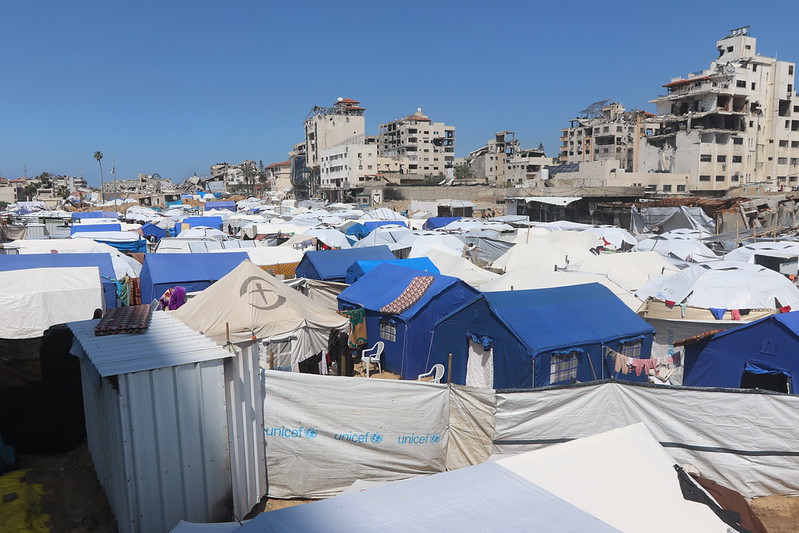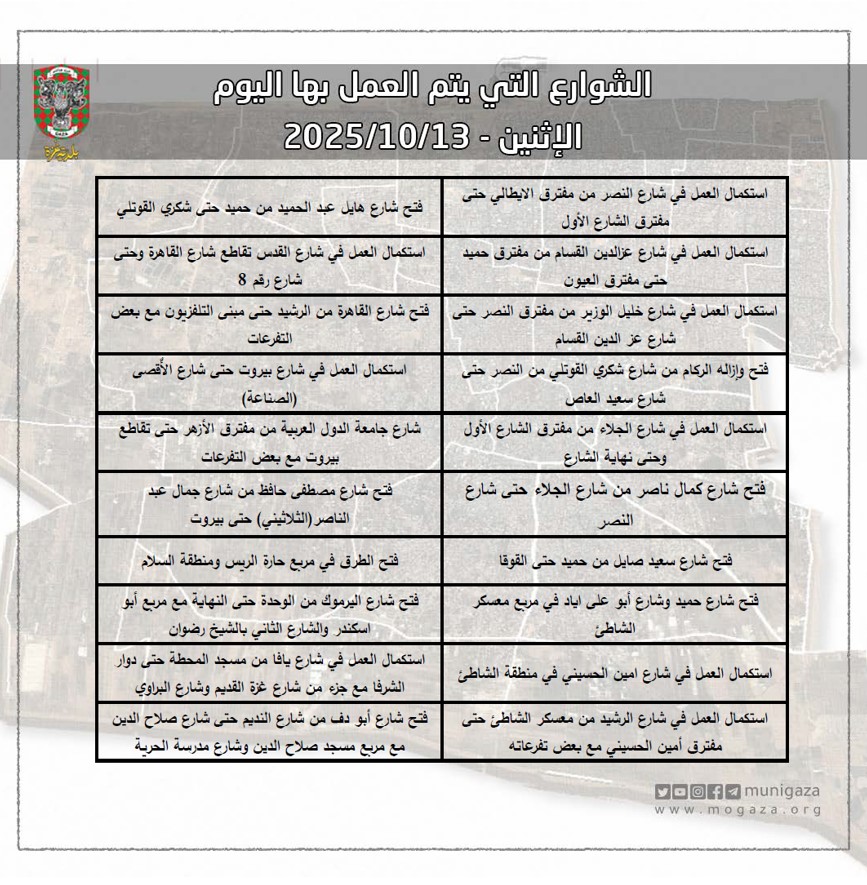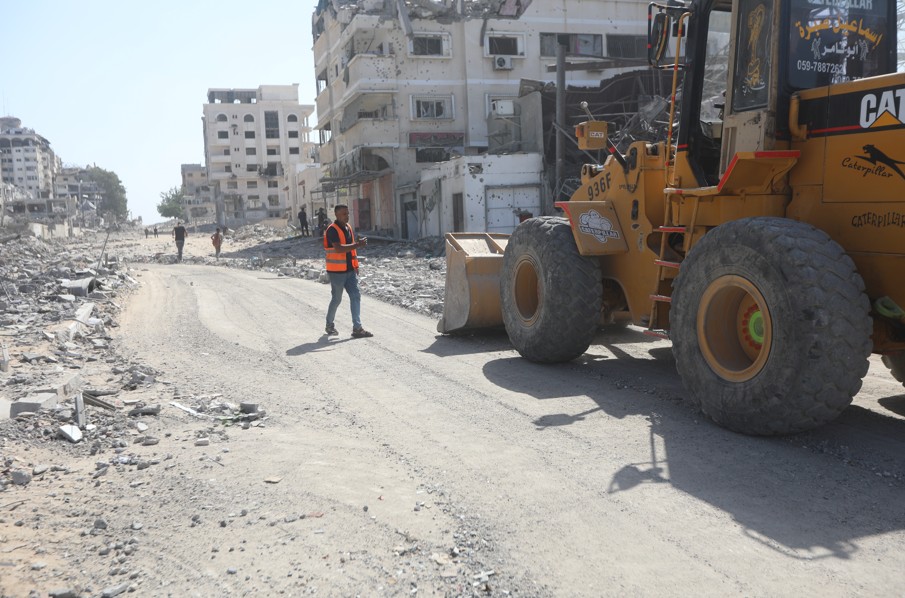
English bellow
إعلام البلدية
أكدت بلدية غزة أن استمرار أزمة النزوح وقلة الإمكانيات يُفاقمان الكارثة الإنسانية التي تعيشها المدينة، ويزيدان من حالة العطش الشديد والكارثة الصحية والبيئية، موضحةً أنها اضطرت إلى تقليص الخدمات الأساسية بسبب عدم توفر الوقود والإمكانيات الأخرى.
وأوضحت أنها تُعطي الأولوية الأولى لتشغيل آبار ومحطات المياه نظراً للحاجة الماسة إلى المياه، في ظل نزوح المواطنين من محافظة شمال القطاع والأحياء الشرقية من المدينة، حيث تزايدت أعداد السكان بنسبة تقارب 50%، ليصل العدد الحالي إلى نحو مليون و200 ألف نسمة، يتركزون في مساحة تقل عن نصف المساحة الكلية للمدينة.
وأضافت أن محدودية كميات الوقود المتوفرة أدت إلى تفاقم الأزمة، وتشغيل عدد قليل من الآبار لساعات قليلة جداً، بالإضافة إلى تقليص كمية المياه الواردة من خط مياه "ميكروت"، مما زاد من أزمة العطش، واضطرت البلدية إلى تقليص الخدمات، لا سيما خدمات المياه والصرف الصحي وجمع النفايات.
وبيّنت أن المدينة تعاني من كارثة حقيقية متفاقمة وخطيرة، بسبب أزمة النزوح وتكدّس النفايات في قلب المدينة، وعدم توفر الوقود والآليات، واستمرار منع الاحتلال لطواقم البلدية من الوصول إلى مكب النفايات في منطقة جحر الديك شرق المدينة.
وتُناشد بلدية غزة المنظمات الدولية بسرعة التدخل، وتوفير الوقود والإمكانيات، للتخفيف من الكارثة، والحد من انتشار الأمراض الناجمة عن الكارثة الصحية والبيئية التي تعيشها المدينة.
.
Reduction of Essential Services
Gaza Municipality: Ongoing Displacement and Limited Resources Exacerbate the Humanitarian Catastrophe
Gaza Municipality has confirmed that the ongoing displacement crisis and limited resources are worsening the humanitarian catastrophe unfolding in the city. These conditions have also intensified the severe water shortage, along with escalating health and environmental crises. The municipality stated that it has been forced to reduce essential services due to the lack of fuel and other necessary supplies.
The municipality explained that its top priority is operating water wells and pumping stations, given the urgent need for water. This need has become more critical due to the mass displacement of residents from the northern governorate and the eastern neighborhoods of the city. As a result, the city's population has increased by approximately 50%, now reaching nearly 1.2 million people concentrated in less than half of the city’s total area.
It added that the limited fuel supply has further exacerbated the crisis, allowing only a small number of wells to operate for very limited hours. Additionally, a reduction in water supplied through the Mekorot line has deepened the water shortage. As a result, the municipality has been compelled to scale back essential services, particularly water supply, wastewater treatment, and solid waste collection.
The municipality further noted that the city is experiencing a serious and worsening humanitarian disaster due to the displacement crisis, the accumulation of waste in central areas, the shortage of fuel and equipment, and continued restrictions by the Israeli occupation preventing municipal crews from accessing the main landfill site in the Juhr al-Dik area east of Gaza City.
Gaza Municipality urgently appeals to international organizations for immediate intervention to provide fuel and necessary resources, in order to alleviate the crisis and curb the spread of diseases resulting from the worsening health and environmental situation in the city.

